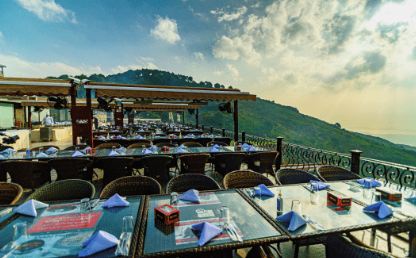This tragic transformation has sparked anger and dismay among citizens. “When Monal was functioning, it was a symbol of pride. Families felt safe, and foreigners left with a positive image of Pakistan. Now, it has become the opposite—a shameful spectacle,” says one concerned resident
DNA
ISLAMABAD: Once perched majestically a top Pir Sohawa, Monal Restaurant stood as one of Islamabad’s most iconic landmarks. Over the years, it became more than just a dining place—it was a symbol of Pakistan’s hospitality and natural beauty. Tourists from across the globe, diplomats, and locals flocked to Monal to enjoy its scenic views, authentic cuisine, and the experience of dining above the clouds. For many, it was a proud showcase of Pakistan’s cultural richness.
However, the closure of Monal by former Chief Justice Qazi Faez Isa drastically changed the fate of this hilltop gem. The Supreme Court, at the time, declared the establishment illegal, citing that it had been built on protected Margalla National Park land. While the court’s order may have been rooted in environmental concerns, the aftermath has shocked and saddened many.
Today, the very space once associated with family gatherings, celebrations, and international tourism has reportedly transformed into a hub of obscenity and immorality. Videos and accounts circulating on social media suggest that the abandoned premises are being misused for nude dances, vulgar shows, and activities that not only degrade the sanctity of the site but also tarnish Islamabad’s cultural and moral image.
This tragic transformation has sparked anger and dismay among citizens. “When Monal was functioning, it was a symbol of pride. Families felt safe, and foreigners left with a positive image of Pakistan. Now, it has become the opposite—a shameful spectacle,” says one concerned resident.
Critics argue that while the intention behind shutting down Monal may have been to protect the environment, the decision lacked foresight. Instead of preserving the land or repurposing it for constructive use, the closure has created a vacuum, allowing immoral activities to flourish unchecked.
The irony is stark: a place once known for bringing together families and promoting tourism has now become associated with obscenity. This has raised serious questions about governance, enforcement, and the consequences of decisions made without considering ground realities.
Islamabad, known for its serene beauty and cultural modesty, cannot afford to let such degradation continue. The authorities must act swiftly—either by reclaiming and rehabilitating the site or by establishing strict oversight to ensure that the area does not remain a breeding ground for moral and social decay.
The story of Monal should serve as a cautionary tale: without vision, even the most cherished landmarks can fall into ruin, leaving behind only regret and embarrassment.

















